- Home
- Sell Fine China
Where Can You Sell China?: The Traditional Auction House Route
If you're asking "where can you sell china?" and have inherited fine porcelain, collected pieces, or simply want to part with valuable ceramic items, traditional auction houses remain one of the most prestigious and potentially profitable routes. While online platforms dominate today's marketplace, the traditional auction house route offers unique advantages that can't be replicated digitally.
Your Complete Guide to Selling Fine China Through Professional Auction Houses
Many people feel overwhelmed when faced with selling valuable china. You're not alone in feeling lost in these "dark woods", this guide will serve as your roadmap through the traditional auction process, helping you understand where to sell fine china effectively and maximize your returns.
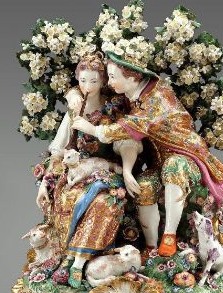
Where Can You Sell China - Online vs. Traditional Auctions: A Strategic Choice
In today's market, you have two primary options when considering where to sell china: traditional auction houses and online marketplaces. Each offers distinct advantages, but understanding the differences is key to making the right decision for your specific items.
This guide will focus on the traditional route, but for a comprehensive look at the digital landscape, be sure to explore our guide on Where to Sell China Online. Both methods are valid, but they cater to different types of collectors and items.
Why Choose Traditional Auction Houses?
When considering where you can sell china, traditional auction houses offer several compelling advantages. The atmosphere of a live auction, with its skilled auctioneers, knowledgeable collectors, and competitive bidding, can drive prices beyond what you might achieve through other channels.
I've witnessed first hand how the energy of a packed saleroom can elevate a piece far beyond its estimated value. There's something irreplaceable about seeing your items presented professionally, catalogued expertly, and bid upon by passionate collectors who truly understand their worth.
Understanding the Auction House Landscape
International vs. Local Auction Houses
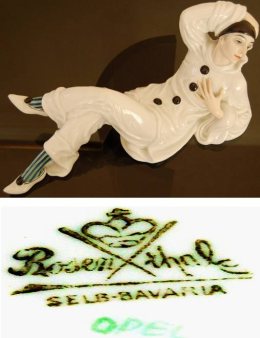
A: Absolutely. The prestigious international auction houses like Sotheby's, Christie's, and Bonhams typically won't handle items valued below $5,000 USD (£3,000 GBP). Sotheby's, for instance, offers complimentary auction estimates for European china and ceramics, but they're selective about what makes it to their salerooms.
This threshold means that if you're wondering where to sell fine china of modest value, these major houses won't be your answer. However, don't let this discourage you, regional auction houses often provide better service and attention for mid-range pieces.
Evaluating Auction House Credentials
Essential Checks Before Consigning Your China:
- Review their website's "About Us" section for specialist credentials
- Check if they hold regular ceramics and porcelain specialist sales
- Examine their online catalogues for similar items to yours
- Verify their marketing reach and online presence
- Confirm their membership in professional trade associations
Modern Marketing: Essential for Success

A: Absolutely crucial. Any reputable auction house should provide online catalogues that reach global audiences. International dealers and collectors regularly browse these digital catalogues, often making purchase decisions before even attending the sale.
When evaluating where you can sell china, ask potential auction houses about their online presence. Request to see examples of how similar items have been catalogued and marketed. Poor photography or inadequate descriptions can significantly impact final sale prices and influence the question of where can you sell china.
A: Definitely opt for specialist sales when possible. If you're determining where you can sell china for the best results, specialist ceramic and porcelain sales consistently outperform general auctions.
Specialist sales attract focused audiences of knowledgeable collectors, dealers, and museums. These bidders understand the nuances of different makers, periods, and styles, leading to more competitive bidding and better prices.
The Professional Assessment Process
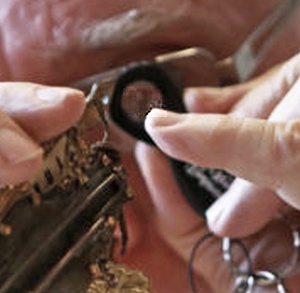
When you've identified where you can sell china through auction houses, the next step involves professional assessment. Most reputable auctioneers have backgrounds similar to the experts you see on programs like Antiques Roadshow, they've learned through years of handling thousands of pieces. To help you navigate this process, you may want to compare this method with the best way to sell china, which offers a side-by-side comparison of all available selling options.
What to Expect from Professional Appraisers
Auction house specialists typically specialize in specific areas. For ceramics and porcelain, look for appraisers who can immediately recognize makers' marks, understand glazing techniques, and spot the subtle details that separate valuable pieces from decorative items.
Insider Knowledge: The best ceramic specialists can often date and attribute a piece within seconds of examination. They've seen thousands of similar items pass through their hands and instinctively know current market values and collector preferences.
A: Professional auction house valuations represent fair market value based on recent comparable sales. However, always get multiple opinions when deciding where you can sell china, especially for valuable or unusual pieces.
Regional differences, seasonal variations, and current collecting trends can all affect values. An appraiser who specializes in your specific type of china will provide the most accurate assessment.
Understanding Auction House Costs and Commissions
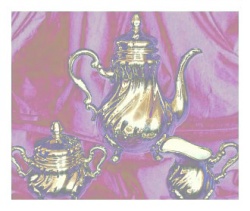
When determining where you can sell china profitably, understanding the complete cost structure is essential. Auction houses generate revenue through multiple commission streams that affect your final proceeds. If you are selling a dinner set, we recommend you read our dedicated page: How to Sell a China Set for specific strategies and advice.
Commission Structure Breakdown
Seller's Commission: Typically ranges from 10-15% of the hammer price. This is your primary cost for the auction house's services.
Additional Charges: Be aware of potential extras including:
- Photography and cataloguing fees
- Insurance during the consignment period
- Unsold lot charges if items don't meet reserve prices
- Marketing and illustration fees for premium cataloguing
Important Note: Buyers pay separate premiums (typically 20-25%) on top of hammer prices. While this doesn't directly affect your proceeds, it influences bidding behavior and final prices achieved.
Reserve Prices and Bidding Strategy
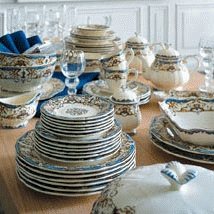
A: Reserve prices are typically set at 10% below the low estimate provided by the auction house. This provides protection while still allowing for competitive bidding to drive prices upward.
Remember, reserves aren't disclosed to bidders, so they won't inhibit competitive bidding. However, setting reserves too high can result in unsold lots and additional charges.
Current Market Trends and Opportunities
The auction market continues evolving. You need to pay attention to this when considering the question 'where can you sell china?' Global auction turnover from fine art auctions down 36% in Q1 2024 compared to 2023, representing market rationalization rather than crisis. This creates opportunities for sellers of quality pieces as competition for good material increases.
Market Insight: Despite these global trends, however, sales in china increased by 9% to an estimated $12.2 billion, indicating strong continued demand for Asian ceramics and porcelain in particular.
Condition Reporting and Documentation
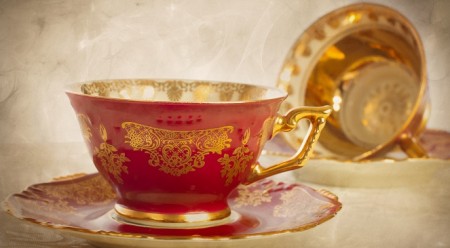
Professional condition reporting is essential when determining where you can sell china successfully. Buyers, especially those bidding remotely, rely heavily on detailed condition reports to make informed decisions.
Reputable auction houses provide comprehensive condition reports that detail any chips, cracks, restoration, or other issues. This transparency builds buyer confidence and helps achieve fair market prices.
Making Your Final Decision

Choosing where you can sell china through traditional auction houses requires careful consideration of your items' value, condition, and market appeal. The traditional auction route works exceptionally well for:
- High-quality pieces from recognized makers
- Complete or near-complete services
- Rare or unusual items that benefit from specialist expertise
- Items with strong collector followings
- Pieces that photograph well for catalogue presentation
Ready to Begin? Start by identifying reputable auction houses in your area that hold regular ceramics and porcelain specialist sales.
When searching for where you can sell china through auction houses, your approach will depend on your location. A great resource for researching local auctioneers and their auction results is global database websites like LiveAuctioneers.com, it's an excellent way to assess their professionalism and market reach before consigning your own pieces to a salesroom.
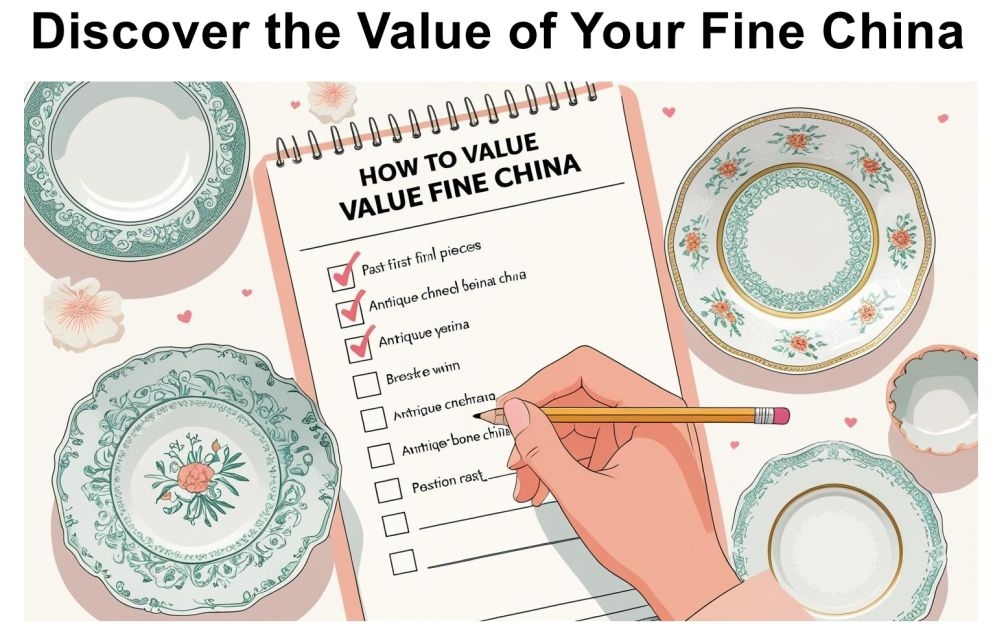
Inherited a china set?... Download my free 7-point checklist to instantly assess its potential value.
From the Studio
• Peter Holland Posters
• Sculpture Studio